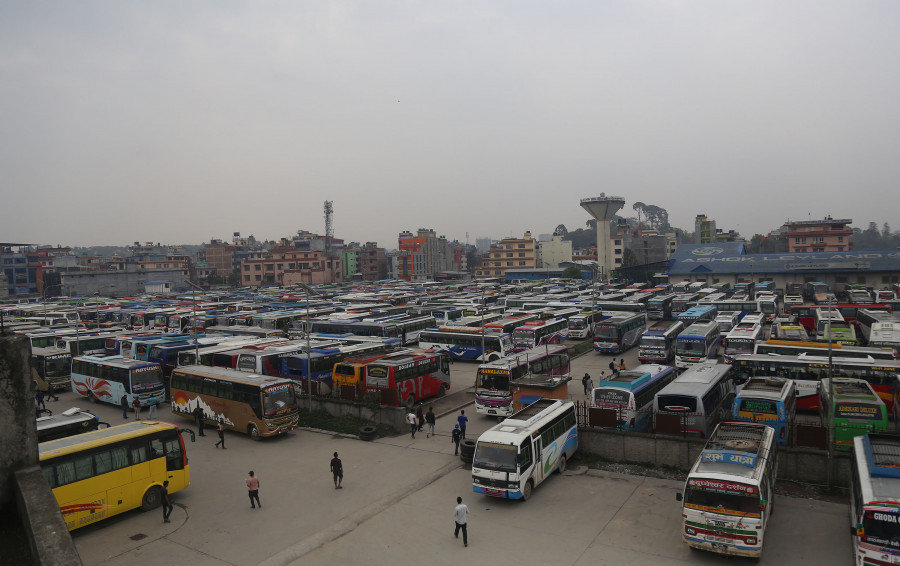National
Can’t welcome decision to allow buses to resume in haste, say health experts, public transport operators
Transport entrepreneurs say government made the decision just to pacify the voices of thousands people who are involved in the sector
Anup Ojha
Health experts, as well as public transport operators, say they can’t welcome the government’s decision to allow buses to resume their services in haste as it was taken without any preparations.
While health experts say that resumption of public transport might spread the virus even more at a time when the Kathmandu Valley is witnessing a surge in the number of Covid-19 cases, public transport operators say it’s hard to implement the new rules issued by the government.
“I see a lot of risks associated with the decision,” said Dr Sher Bahadur Pun, a virologist at the Sukraraj Hospital in Teku. Pun said that a dangerous mix of public transport operators trying to make-up for losses inflicted by the lockdown and the general public desperate to move around could spell disaster.
Following the nationwide Covid-19 lockdown, which began on March 24, over 400,000 public vehicles were forced off the road for nearly four months with thousands of people dependent on the business losing their livelihoods.
“We don’t have an environment of trust as bus operators are looking for opportunities to earn, and passengers are desperate to move about,” said Pun. He said this decision could have made sense if only the people were conscious about their behaviour and the need for social distancing to avoid getting infected.
A day after a parliamentary committee directed the government to allow taxi operators to resume their work, the government on Thursday allowed public vehicles to operate within Kathmandu, Lalitpur and Bhaktapur. Public transport operators outside the Valley must limit their services within their respective district.
With the announcement, bus operators only get to ferry passengers up to 50 percent of their seating capacity. While fares have increased by 50 percent, drivers and conductors are required to wear masks and provide hand santiser to passengers.
Although the government decided to allow public vehicles to return to the road after four months, it is not clear who is going to monitor if they comply with the rules or not, especially as rules set by the government for restaurants and pillion riders have been widely violated.
“We came to know about the government's decision through the media, it’s just a decision made for the sake of it,” said Saroj Sitaula, general secretary at the Federation of Nepalese National Transport Entrepreneurs. He said that it won’t be easy for public vehicles to return to the road all at once as the government’s decision came without any prior preparations.
“This decision was taken without doing any prior preparations,”said Sitaula.
“We will decide our stance on the issue during our meeting on Friday.”




 14.24°C Kathmandu
14.24°C Kathmandu.jpg)















